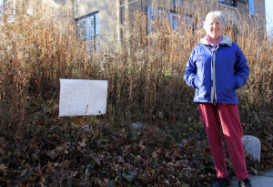Wildlife film maker Rebecca Hosking investigates how to transform her family’s farm in Devon into a low energy farm for the future, and discovers that nature holds the key.Check out there first ten minutes of the film below. View the full film here.
With her father close to retirement, Rebecca returns to her family’s wildlife-friendly farm in Devon, to become the next generation to farm the land. But last year’s high fuel prices were a wake-up call for Rebecca. Realising that all food production in the UK is completely dependent on abundant cheap fossil fuel, particularly oil, she sets out to discover just how secure this oil supply is. Alarmed by the answers, she explores ways of farming without using fossil fuel. With the help of pioneering farmers and growers, Rebecca learns that it is actually nature that holds the key to farming in a low-energy future.
The documentary goes on to explain that a food system based on permaculture can not only eliminate the detrimental effects of conventional farming, but also, if done correctly and with care, be more productive with less effort in the long run than conventional agriculture. That notion may seem a bit far fetched until you start to think about the power of nature. Conventional farming today is so labor intensive in large part because it works against nature instead of with it. It takes a lot of time and energy to force a forest into pasture, for example, but it requires a much smaller input to work with that same forested space to produce an equal quantity of food in a manner more consistent with how the forest would have grown in the first place. Nature does an excellent job growing plants and raising animals, so why not use that to our own agricultural advantage instead of fighting with it?
To ensure an agricultural model that can feed all of us in the near future, it is essential that we all become informed farmers, gardeners, and consumers. If you watch the film and agree with the argument it makes, share it with your friends. Let's start looking at agriculture from a new perspective, and be open to the more sustainable possibilities that are available to us.
Have a great weekend!
-Melissa





